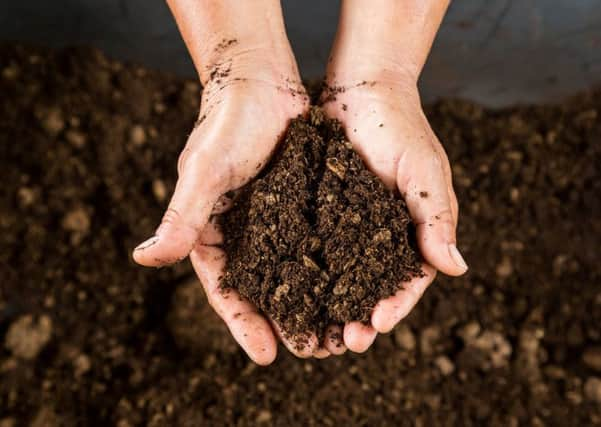Compost? Which to choose


To keep things simple, be aware that there are basically two types of compost: Soilless and soil-based.
Soilless: These types are ideal for quick-growing crops or annuals in pots, where the plants are only going to be in the pot or container for a year.
Advertisement
Hide AdAdvertisement
Hide AdSoil-based: These are better for planting trees or growing permanent specimens in containers, such as shrubs or perennials. They are sold under the John Innes formula and are made from a mixture of loam, sand or grit and peat, with plant foods added.
Each John Innes number contains progressively more feed. John Innes No. 1 is good for pricking out or potting up young seedlings; No. 2 has more nutrients and is used when potting up small plants and vegetable plants in containers; No. 3 is ideal for mature plants, permanent plantings in pots and when planting trees and shrubs.
What styles of compost are available...
Multi-purpose compost
This is the most versatile compost, which can be used to dig in and enrich beds and borders, as well as plant up containers. Peat-free compost
Peat-free composs generally retain water better, which is great in hot summers, but can lead to rotting plants in wet winters. So add grit to your peat-free compost before planting to enhance drainage and water your plants little and often during the summer.
Ericaceous compost
Advertisement
Hide AdAdvertisement
Hide AdAcid-loving plants including camellia, azalea, rhododendron and heather are best planted using ericaceous compost. It’s often better to choose plants that will like your existing soil, rather than trying to adapt unsuitable plants using specific composts.
Seed and potting compost
Seed compost has the lowest amount of nutrients, which encourages the best germination and growth of tiny roots. A seed compost is much more in tune with the needs of a developing seed than a general multi-purpose compost.
Spent mushroom compost
This is generally cheaper than other composts and is often used as a soil conditioner or to mulch a bed. It has a high lime content so is ideal for the vegetable garden as veg crops.
Animal manure
Animal manure is a fantastic soil conditioner, but it must be well rotted before adding to the soil, or the concentration of nitrogen will scorch young plants.